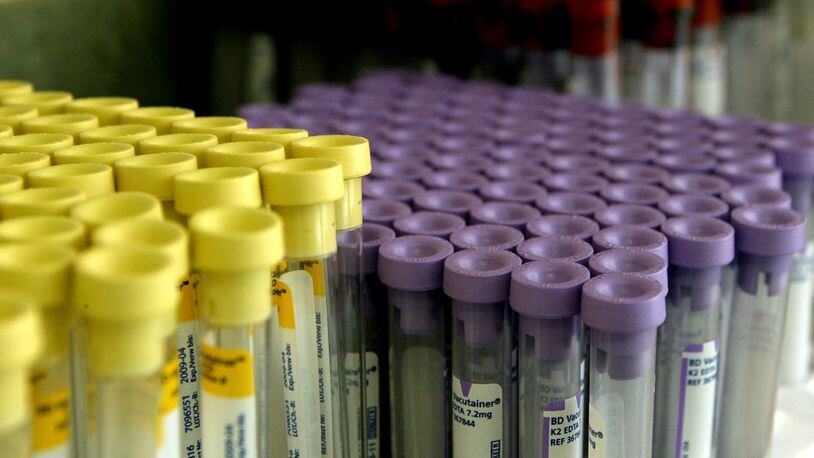Butler County is No. 1 in Ohio with people diagnosed with Hepatitis A, and is on pace to end 2018 with 800 new cases of Hepatitis C and 23 new cases of HIV, according to the Butler County Health Department.
Butler County Health Commissioner Jenny Bailer said the program is “critically important” to the region and would service Butler and northern Hamilton counties.
“This Bloodborne Pathogen Prevention Program is critically important in keeping those diseases in check,” Bailer said.
Once the program is running, a mobile van from Hamilton County Public Health will be at Mercy Fairfield once a week for a couple of hours.
“The main reason for doing this is to get people interested into going into treatment,” Bailer said. “There are a lot of things that will happen through this program, not just the exchange of needles. There are other things that are offered through this service.”
The city of Fairfield formally became involved when City Council voted 6-1 Monday to support the disease reduction and prevention program. That vote was one of many steps needed to be taken to formally establish it, Bailer said.
“It’s a long-term process to get a process like this setup,” she said. “The law prescribes exactly what has to be done in advance of this.”
Fairfield Vice Mayor Craig Keller voted against City Council’s resolution supporting the program for one reason: the needle exchange part of it.
“I like all aspects of what I’ve seen previously, but my only obstacle is the needle exchange program,” Keller said. “I think it condones continual illegal drug usage. That’s what it comes down to.”
RELATED: Ohio logs 900 cases of hepatitis A amid multistate outbreak
Fairfield would be the second community in Butler County to support the Bloodborne Pathogen Prevention Program. Middletown established its program in 2016. Middletown Health Commissioner Jackie Phillips said it’s difficult to quantify the program’s direct influence — as the city has attacked its drug abuse problems, most notably heroin and opioids, in multiple directions — but she said it has played a significant role in the overall reduction.
“We are seeing a decrease in infectious diseases,” she said. “Middletown has fewer new HIV cases, has fewer new hepatitis C cases and fewer overdoses.”
Phillips said if addicts are coming to the program’s van, which is parked in the 400 block of Crawford Street, “that means they’re thinking about better health and better resources.”
Phillips, who said she has spoken with recovering addicts, disagrees with Keller’s belief that needle exchanges condone continued illegal drug activity.
“You at least have to have a healthy body in order for you to get a healthy mind (in recovery),” she said. “If not, they may just go back to using.”
The program is also “an economic investment” in the community, Bailer said.
“When people get diseases from sharing needles, they’re not run-of-the-mill diseases. They’re diseases that make people really sick and they become hospitalized, they can’t perform well at their jobs and those are all things that society ends up bearing the cost of then,” Bailer said. “When people can’t work, then they can’t pay their medical bills and hospitals then have to provide charity care, taxpayers have to pick up the bill for that.”
RELATED: How local hospitals are combating spike in Hepatitis A
There are several partners involved in establishing this program, which includes Mercy Fairfield, the Butler and Hamilton county health departments, Butler County Board of Mental Health Addiction and Recovery Services, and the Fairfield Opiate Task Force.
The cost for Fairfield’s program is yet to be determined, but it will be paid for by the MHARS board.
The next step is community education, Bailer said.
“We really want the public is about and to be able to separate myth from fact,” she said.
About the Author
